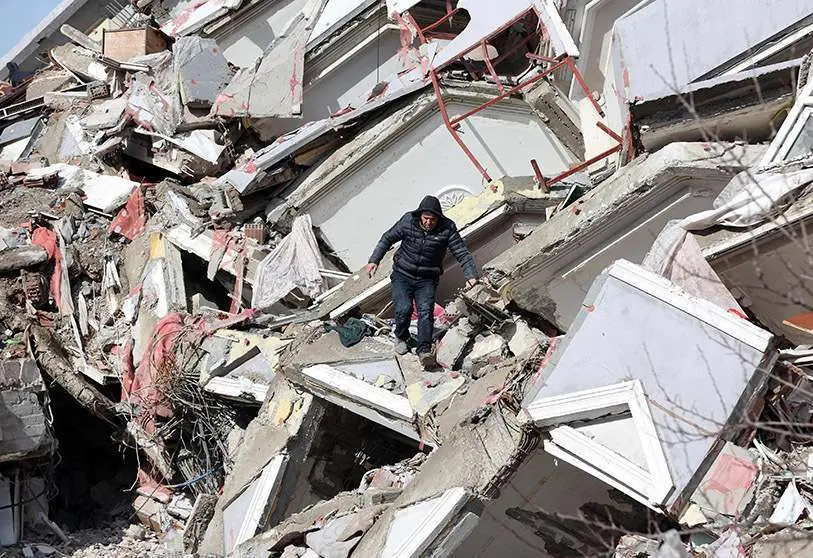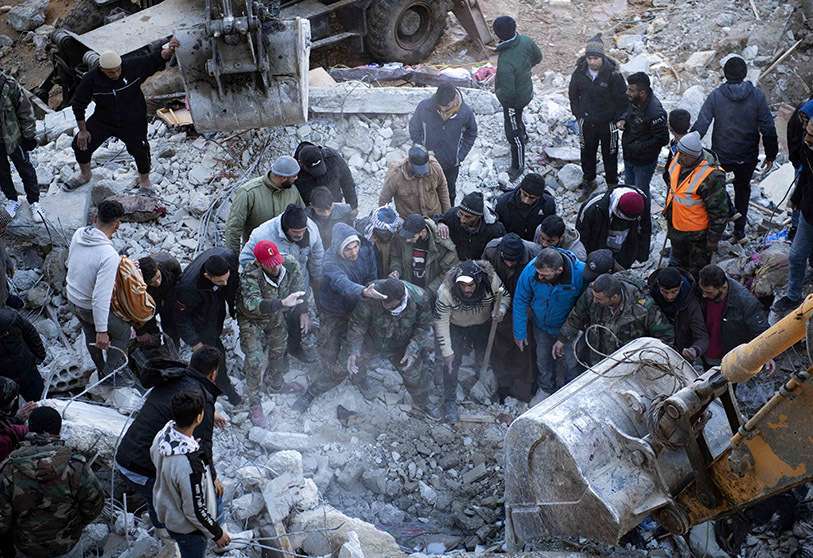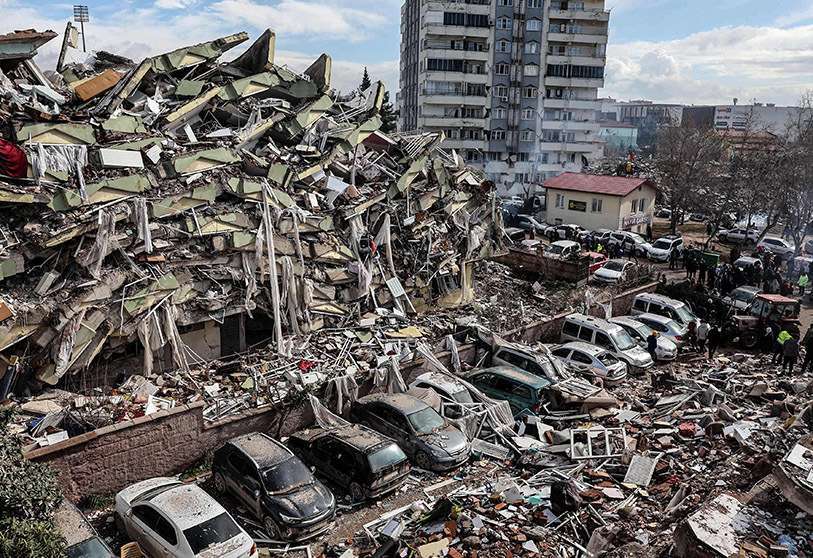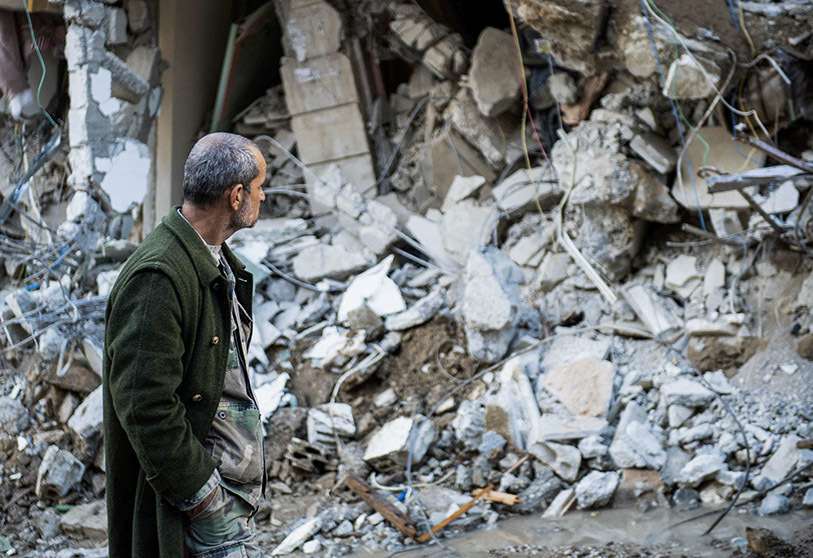Rescue efforts progress in Syria with little outside help three days after the quake

Thousands of people are holding their breath waiting for news of loved ones still missing in the earthquakes in the last opposition stronghold in northwestern Syria, where no aid has entered in the last three days despite repeated appeals from the impoverished region.
Neighbours, local fighters and rescuers from the so-called White Helmets are carrying out rescue operations in the worst-affected areas of opposition-held Idlib and Aleppo provinces, home to more than 4 million people already dependent on humanitarian assistance.
The White Helmets have repeatedly warned that they do not have sufficient debris removal machinery, among other resources, and estimate that "hundreds" of people remain buried under collapsed buildings two and a half days after the initial quake, with a diminishing chance of survival.

In total, the death toll across the country now stands at 2,662 and the number of injured at 4,985.
The authorities responsible for the Bab al Hawa border crossing, which links Idlib with Turkey and is the only way in for supplies to these opposition areas, said in a statement today that "no aid from any entity, UN or non-UN, has reached the liberated areas of northwestern Syria".
The only other alternative is so-called "trans-linear" deliveries from areas held by Bashar al-Assad's government, an option that has many limitations and which the UN plans to use to get a convoy to the northwest in the coming days, according to UN spokesman Stephane Dujarric.
An official at the Bab al Hawa crossing, who requested anonymity, confirmed to EFE that so far only the bodies of Syrian refugees who died in Turkey as a result of the earthquake have passed through, to be buried in their places of origin in Syria.
Although the roads leading to the border crossing have been damaged by the earthquakes, the source wondered "how do do dozens of cars arrive at the crossing with the bodies of martyrs, but humanitarian convoys are not able to get there?", especially when the UN has a warehouse only a kilometre away.
According to his account, the infrastructure at Bab al Hawa has also not suffered any partial collapse or technical problems preventing transit from either side.

Delivering aid to these areas is often complex because they are home to a myriad of insurgent groups, in the case of Idlib mainly the Levant Liberation Organisation, an Islamist alliance that includes the former Syrian affiliate of al-Qaeda, formerly known as the al-Nusra Front.
In areas controlled by al-Assad's government, supplies and rescue workers have arrived, mainly from countries in the region such as Algeria, Egypt, the United Arab Emirates (UAE), Libya, Lebanon, Iraq and Iran, as well as some aircraft from further afield.
Al-Assad has received pledges of aid and calls for solidarity from the leaders of these and other nations, some of which have not had diplomatic contact with Damascus since his brutal crackdown on the popular uprisings that erupted in the country in March 2011.
Many Syrian activists and internet users have criticised the differences between the amount of aid received by Turkey, which has been hardest hit by the quake, and that received by the Syrian government, which has been sidelined for years by the international community due to its totalitarian policies and human rights abuses.

In an interview with the Lebanese channel Al Mayadin, reported today by SANA, the Syrian Foreign Minister, Faisal al-Miqdad, denounced that international sanctions against Damascus "exacerbated the disaster", despite the fact that according to international law they do not apply to humanitarian aid.
However, the European Commission today "categorically" denied that its sanctions affect the delivery of earthquake assistance and called on members of the EU bloc to respond to a request received today from the Syrian government for medical and first aid supplies.
According to the flight tracking portal "Flightradar24", more than 100 flights from various countries, mainly European and Arab, transited Turkey's airspace at around 12.00 GMT bound for the airports of Ankara, Istanbul and Adana, where there is a large concentration of cargo planes.
At the same time, only three cargo aircraft were passing through Syrian airspace on their way to Damascus from Egypt, Iraq and Lebanon, according to the same portal.








